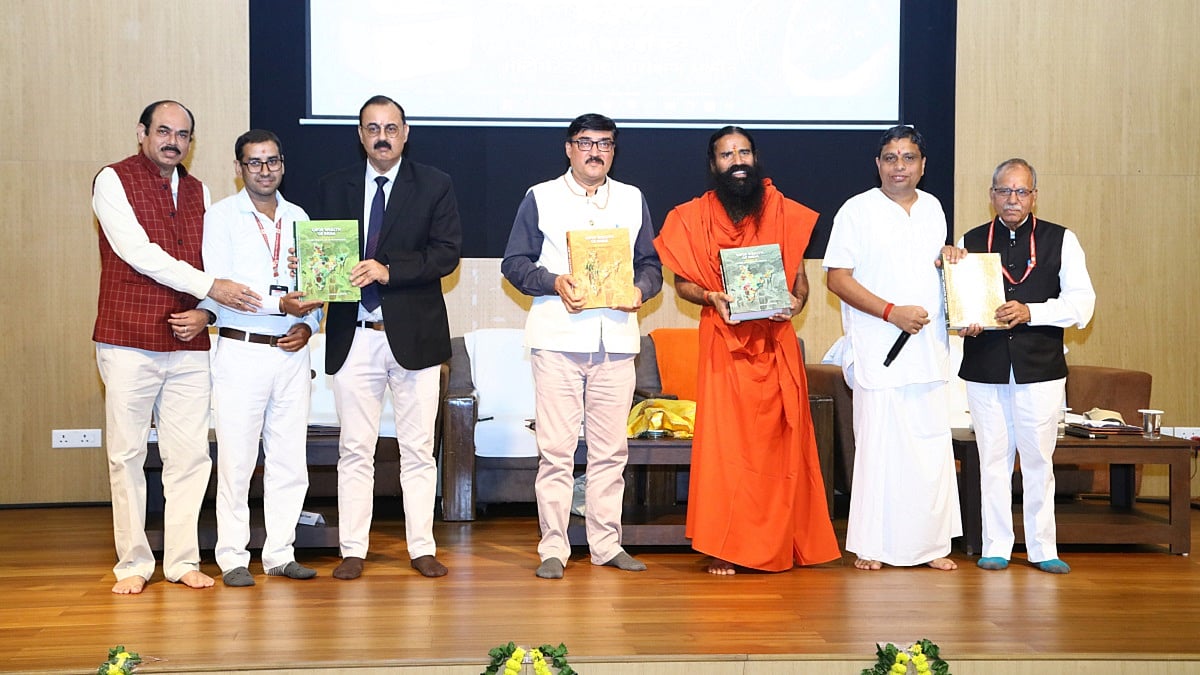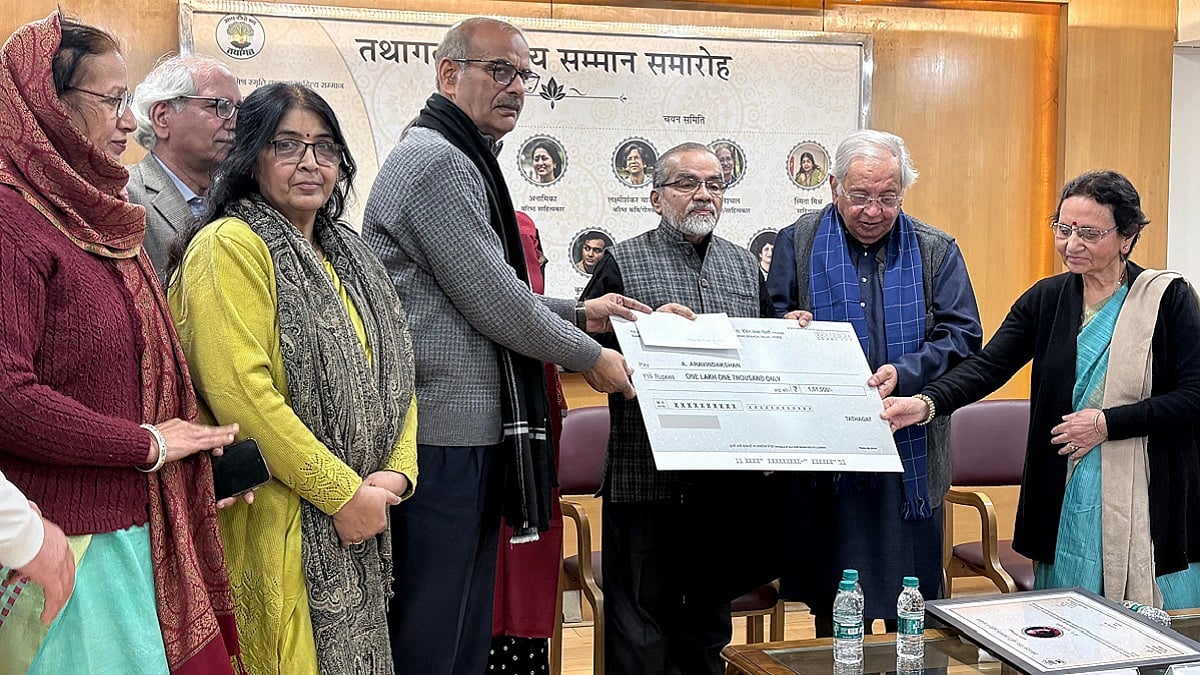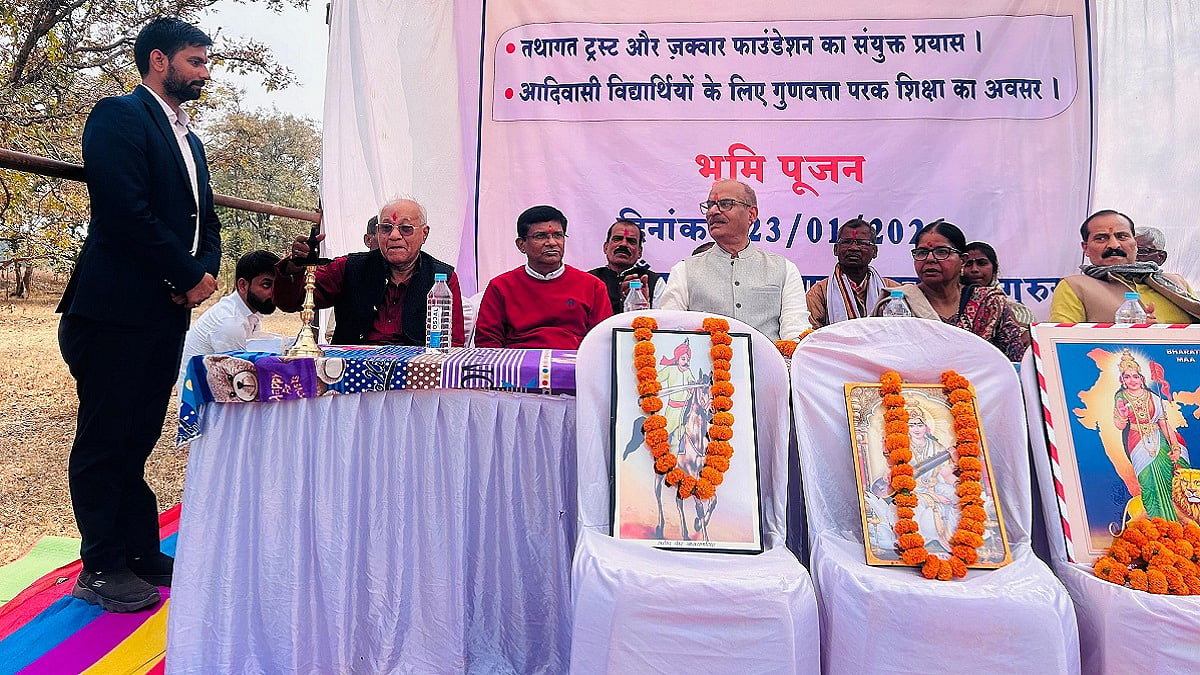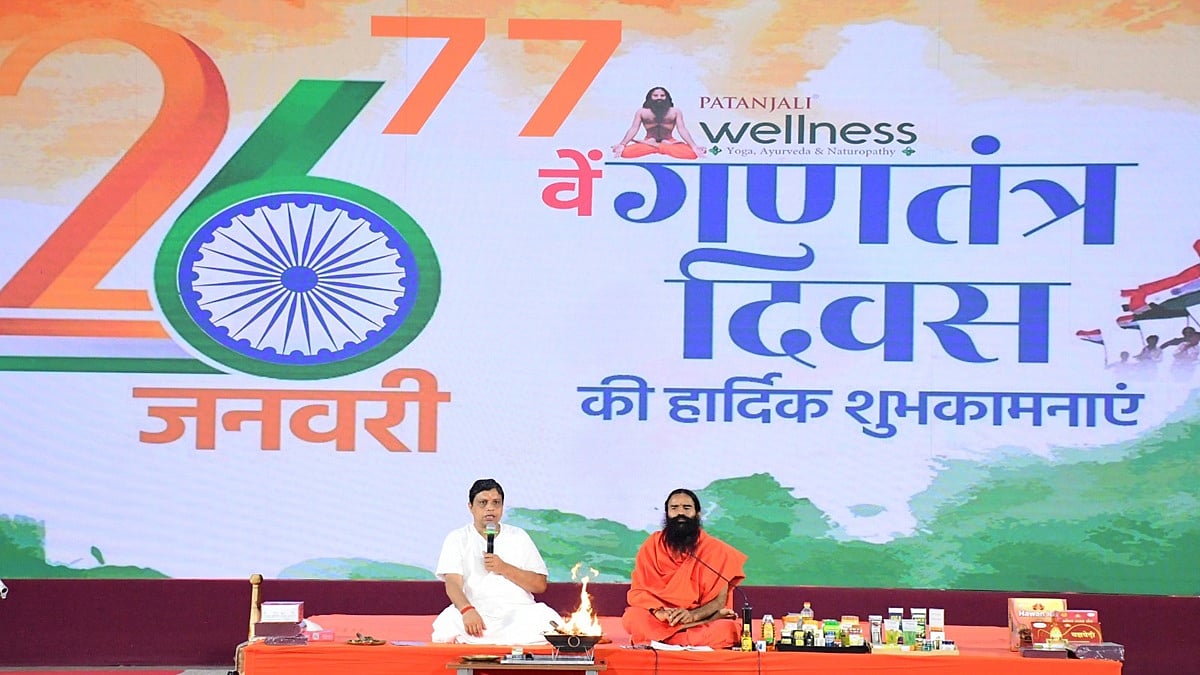October 28, 2025: Under the aegis of the Ministry of AYUSH, Government of India, Patanjali Organic Research Institute and ICAR-1, with the cooperation of National Bank for Agriculture and Rural Development (NABARD) and in joint effort with Bhurva Agriline, a two-day national workshop on “Quality Cultivation of Medicinal Herbs through Soil Health Testing and Management” under the “Healthy Earth” scheme was successfully held on October 28 at the Patanjali Research Foundation and Patanjali University Auditorium.
The aim of the event was to promote a healthy planet, sustainable agriculture and long-term food security and to strengthen these efforts globally. National and regional farmers, researchers, agricultural scientists, and technologists participated and discussed technical measures for soil health management and improvement of soil quality.
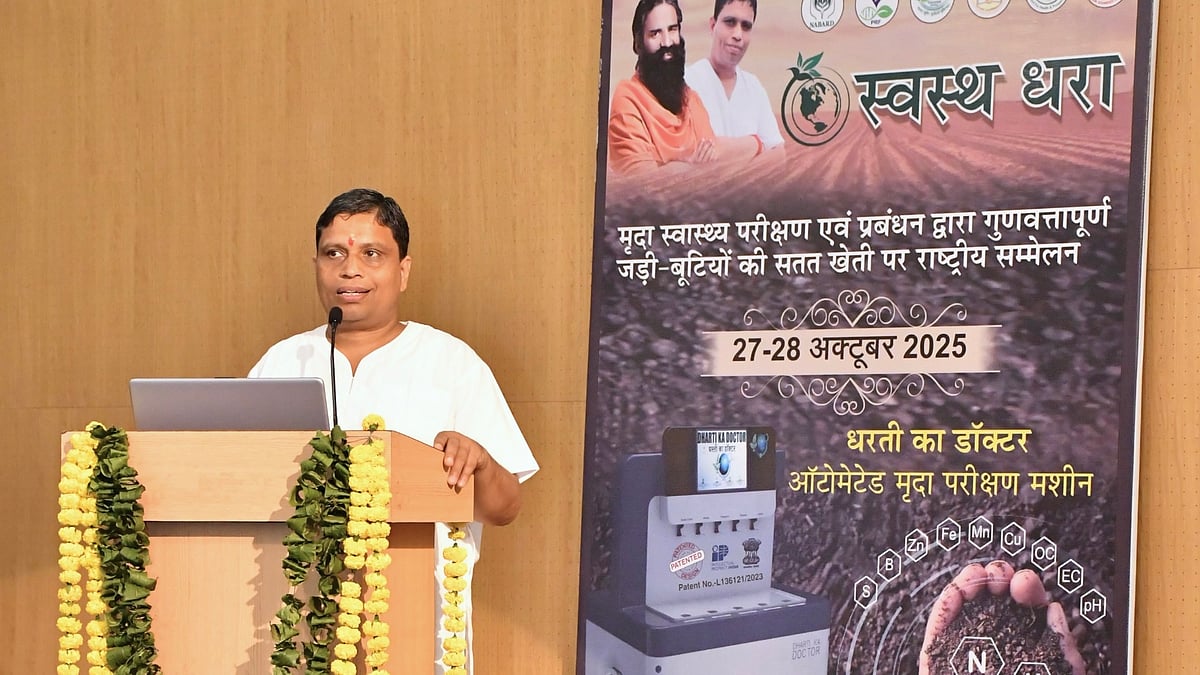
At the inauguration, Acharya Balkrishna Ji Maharaj, Chancellor of Patanjali University, welcomed the distinguished guests with floral bouquets, ceremonial scarves, and mementos. The event began with lamp lighting, followed by the Healthy Earth theme song by Shri Chandramohan and his team. The welcome address was delivered by Dr. A.K. Mehta, Director (Technical), Horticulture, Patanjali Organic Research Institute.
In his inspiring address, Acharya Ji spoke on the message of Yoga, Rishi culture, and the Green Revolution, emphasizing that due to excessive use of chemicals, Mother Earth is suffering, and this impact will harm the health of future generations. He urged the adoption of organic farming instead of chemical-based agriculture.
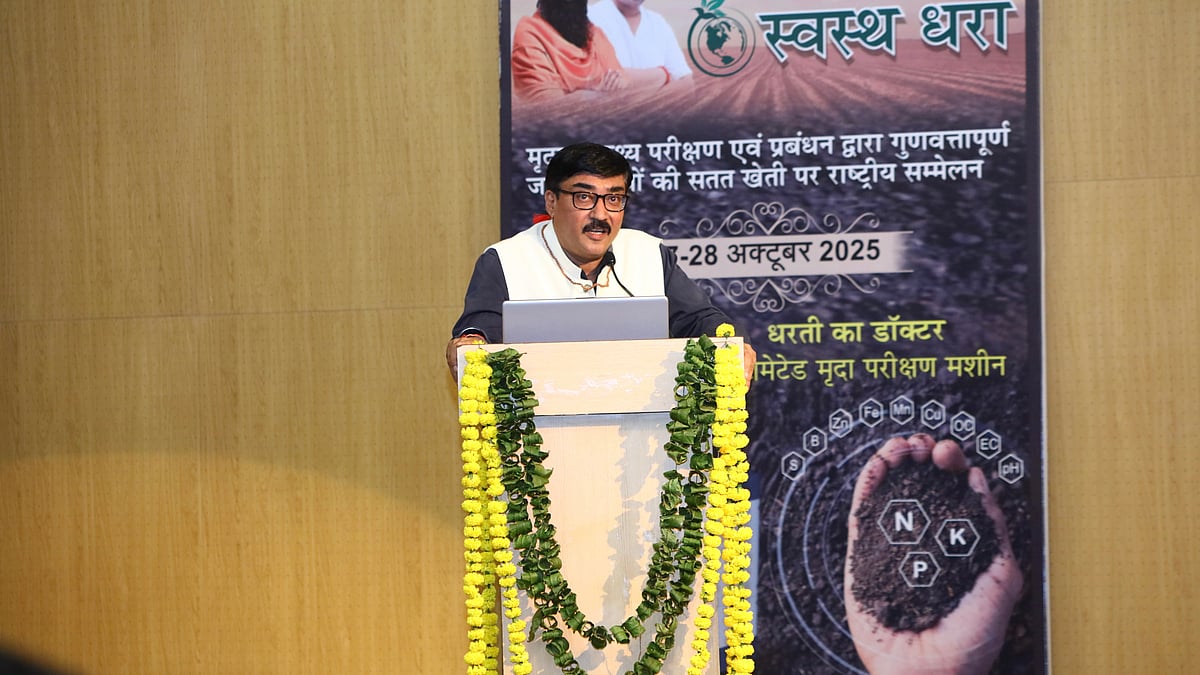
According to Swami Ji, only 10% of total food processing in India takes place, of which Patanjali accounts for 8%. Patanjali leads in the production of amla, aloe vera, grains, and oil products. The institution is dedicated to protecting nature, the environment, and the earth, and is continuously conducting research on bio-compost and Ayurvedic herbs. With government support, Patanjali has trained more than 80,000 people.
Highlighting the revolutionary changes in soil management through technology, he said that soil management is a fundamental process that influences soil health and agricultural stability. With technology becoming increasingly central to farming, transformative changes are taking place in soil management. Through digital platforms, farmers can now improve soil testing, soil management, crop planning, irrigation, and pest control. He stressed the importance of technological integration to promote sustainable agriculture and address related challenges.
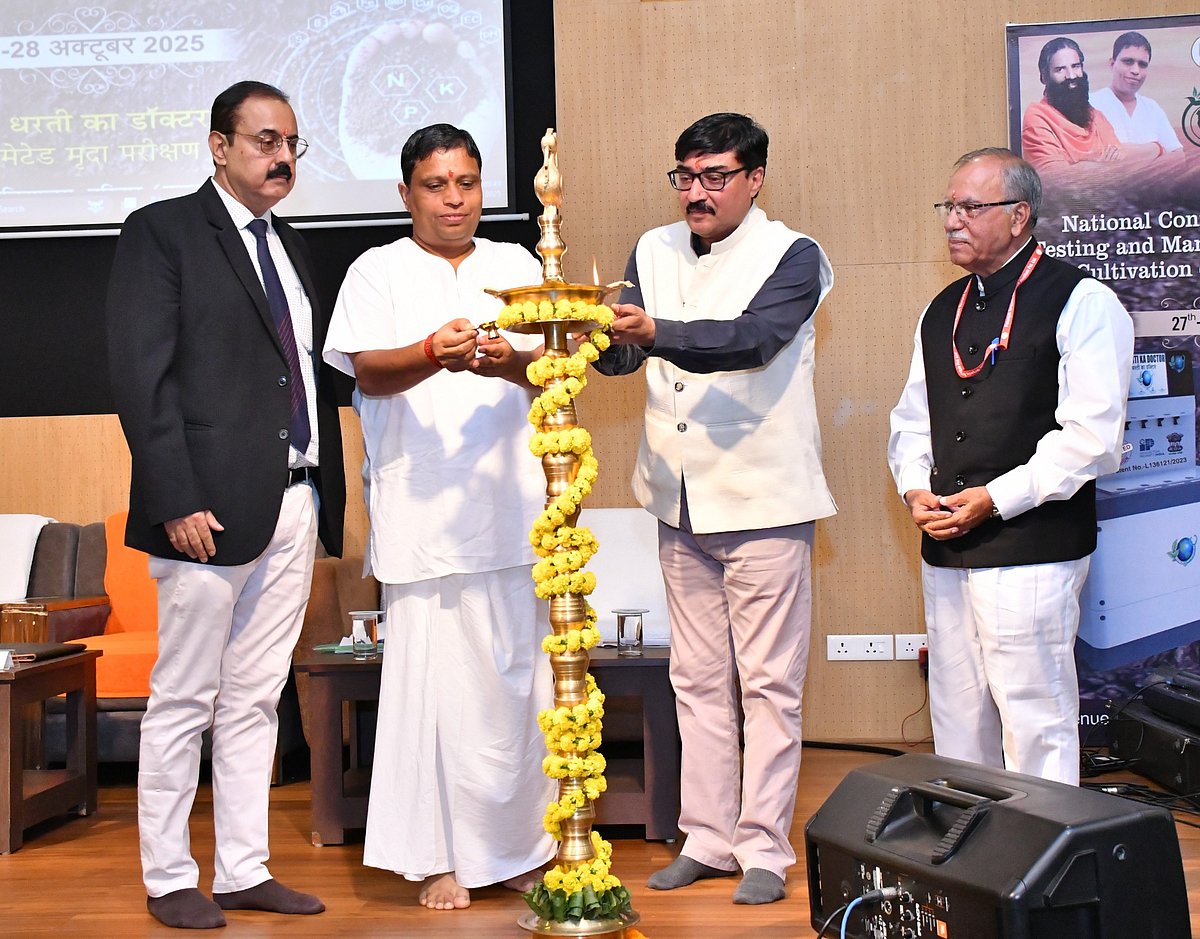
Revered Swami Ji, delving deep into the Vedas, emphasized the need to understand their profound meanings, knowledge, and pure principles. He said that the Vedas are not only scriptures of knowledge but also represent the scientific foundation of life, nature, and creation. He added that the role of scientists in agriculture is crucial, as they educate farmers through new technologies, high-yielding varieties, and soil and crop disease management.
He noted that this is only possible when our soil is healthy and disease-free. Agricultural scientists, through research and innovation, are developing sustainable and eco-friendly agricultural systems. Patanjali’s automated soil testing machine “DKD” is contributing significantly to increased crop yields.
Speaking on the protection of natural resources and water-based agricultural systems, Swami Ji said that soil becomes productive and pure only when proper management techniques are applied, which enhance productivity and profitability both in the present and future. Healthy soil is capable of producing more output at lower cost. He emphasized that biodiversity is the foundation of agricultural success, maintaining balance in soil health, cost control, and profitability, and that developing agri-technologies for potential medicinal plants is essential today.
Special guest Dr. Rajbir Singh, Additional Director General (Agriculture Extension), ICAR, highlighted Patanjali’s central role in the Green Revolution, stating that to stop migration in Uttarakhand, promotion of herb cultivation is essential. He added that Patanjali is working to double farmers’ income by purchasing agricultural products directly from them.
In the digital era, Patanjali has connected farmers through digital platforms using bee-banking systems, which has increased transparency in the credit process. He said that such events will serve as global inspiration for Healthy Earth management, pure farming, and soil health improvement.
Dr. Pradeep Kumar, former Vice-Chancellor, Sher-e-Kashmir University of Agricultural Sciences and Technology, Jammu, said that soil health is the foundation for plants, animals, and human life, maintaining soil productivity while improving the quality of water and air. To protect it, integrated nutrient management, crop rotation, green manuring, and soil testing are essential.
Dr. Sanjay Srivastava, Principal Scientist, ICAR Bhopal, discussed the role of remote sensing and DNA sequencing techniques, saying these methods help farmers make quick decisions by accurately identifying soil status, salinity, and nutrient deficiencies.
Other experts including Dr. V.J. Purkayastha, Dr. R.K. Chentia, Prof. Ajay Ramdev, Dr. Baljit Singh, Dr. G.P. Raw, Dr. J.A.M. Raina, and Dr. Gulshan Kumar Dhingra shared their views on soil health testing, quality control of medicinal plants, and agricultural technology development.
Expressing gratitude in the closing session, Dr. Vedashpriya Arya, Head of the Department of Medicinal Plant Research, Patanjali Research Institute, shared information about Patanjali’s upcoming projects, online distance learning courses, and educational programs.
The seminar concluded that plants play a vital role in converting carbon dioxide and water into carbohydrates, aiding in the formation of roots, stems, leaves, and seeds, which generates new opportunities. Representatives from NABARD visited Patanjali Food, Herbal Garden, and Research Centre and appreciated their efforts.
The program concluded with a vote of thanks to all guests and participants.
